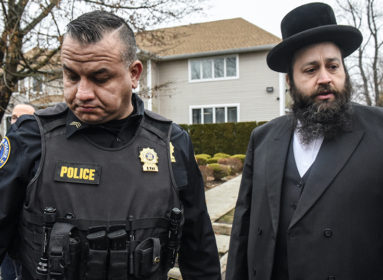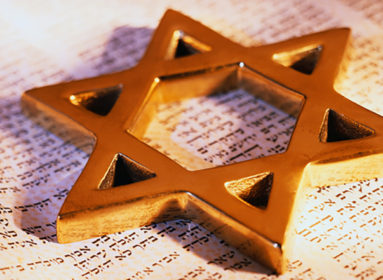
On Tuesday, March 15, Dr. Dale Atkins will discuss the fine art of getting along with your in-laws in Bridgeport. Which led us to pose this question to Connecticut rabbis: The Torah instructs us to honor our parents…but what does Jewish text or tradition have to say about our relationship with our in-laws? Here’s what a few had to say.
If we look to the Torah for wisdom regarding in-law relationships we find, perhaps unsurprisingly, the full range of real-life possibilities laid before us. Yitro, father-in-law of Moses, is respectful and admiring of his son-in-law, but also offers advice on a better way to do things. Moses is open to receiving the advice of an elder, and benefits from it. Ruth has a deeply loving relationship with her mother-in-law, Naomi, and dedicates herself to remaining with her, assisting her as they make their way back to the center of their community. The relationship between Jacob and his father-in-law, Laban, is one of manipulation and distrust. The Torah holds up a mirror to the real lives that we live, and the complexities of navigating familial relationships of all kinds. Jewish values place before us both the command to ‘honor your father and mother’ (Exodus 20:12; Deuteronomy 5:16) and reminds us that ‘therefore shall a man leave his father and his mother, and shall cleave to his wife, and they shall be one flesh’ (Genesis 2:24). And so it is that each of us navigates the path that holds both of these to be true – honoring parents and in-laws, and yet also creating a new family and household that demands a healthy separation of both spouses from their parental home. Holiness is found in the intention and care we bring to navigating that path.
Rabbi Rachel Gurevitz, Congregation B’nai Israel, Bridgeport, CT
~~~~~~~~
Some time back, I was fortunate enough to marry a fine woman. She had been widowed a few years earlier. When we married, I acquired a wife, a mother-in-law and a mother-in-law-in-law. The concept of machatunim applies to my wife’s mother. But, what do you call my relationship to the mother of my wife’s deceased husband? The answer is simple. I call her mishpacha, family. Mishpacha is a wonderful term that applies to anyone irrevocably taken in and treated with respect. To quote Garrison Keiller, “There is a certain advantage to distant relatives. You have the option of claiming them.”
Rabbi Jeffrey Glickman, Temple Beth Hillel, South Windsor
~~~~~~~~
“Mother-in-law, mother-in-law… The worst person I know, mother-in-law…She thinks her advice is a contribution, but if she would leave that would be the solution, and don’t come back no more, mother-in-law!” The words of that 1961 Ernie K. Doe New Orleans reverberate through my mind as I ponder the question. They emphasize to me how the Jewish orientation to a question is often the opposite of what we find in contemporary American culture.
The shining literary example, of course, of a mother-in-law/daughter-in-law relationship is the beautiful story in the Book of Ruth. Rather than allow her mother-in-law Naomi to face a lifetime alone after the death of both her husband and her two sons – and despite Naomi’s entreaty that her daughters-in-law “get on with their own lives” — Ruth’s declaration of love and loyalty rings out across the ages: ‘Entreat me not to leave you or to return from following after you; for wherever you shall go, I shall go, where you lodge I will lodge, where you die, I will die. Your people shall be my people, and your God, my God. Where you die, I will die and there will I be buried.” (Ruth 1:16-17)
This passage is the template for the way my wife Vickie treated – and was treated by – my mother until the day mom died. They shared love, warmth and mutual respect. Neither could do enough for the other. Similarly, I love and revere my mother-in-law soon (God willing) to celebrate her 90th birthday. She came to this country as a refugee from Hitler, never had the chance to receive formal education, and yet she is extremely well-spoken, intellectually curious, and living completely independently. She is a most talented photographic artist and painter. Her work has hung in museums and earned prizes in jury reviewed competitions. I have untold respect for her.
Clearly, I have been blessed in this area, so perhaps it is easier for me than for some to see the story of Ruth as my model of how our tradition regards in-law relationships. On the other hand, even those who resonate more to Ernie K. Doe’s words than Ruth’s still have the obligation to accord honor and respect to the people who brought the person they love most into the world.
Rabbi Stephen Fuchs, Congregation Beth Israel, West Hartford







 Southern New England Jewish Ledger
Southern New England Jewish Ledger














